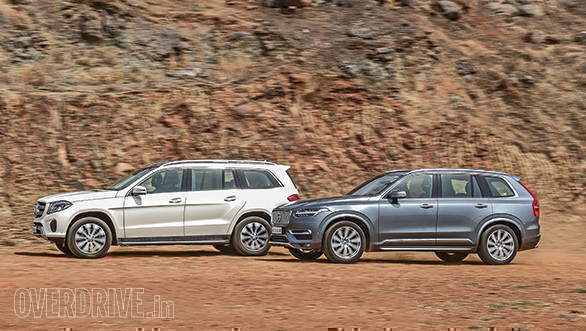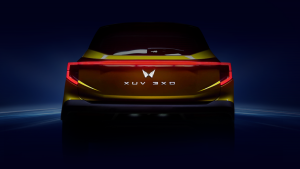GST cess increase causes uncertainty in the auto industry
The GST became applicable in our country on July 01, 2017. Just a little over a month later, when the GST Council met on August 05, it recommended to the central government to increase the cess on SUVs and luxury vehicles from the present 15 to 25 per cent! This was followed by a finance ministry statement saying, "The decision on when to raise the cess to 25 per cent will be taken by the GST Council in due course."
This development has caused a lot of concern in the auto industry, and some manufacturers have been very vocal with their protests. Roland Folger, MD and CEO, Mercedes-Benz India, issued a press statement in which, amongst other things, he said, "We are highly disappointed with the decision. We feel deprived as the leading manufacturer of luxury cars in India, who has been championing 'Make in India'. This decision once again reiterates the need for a long-term roadmap for the luxury car industry, which has been at the receiving end of arbitrary policies. The constant shift in policy makes our long-term planning for the market highly risky, and we think this would only have an adverse impact on the country's financial ratings." Folger further added, "One month is too short a period to consider an upward revision in rates. The market performance should have been watched for at least six months, before it was re-looked."

Several other manufacturers have also expressed fears that such decisions will lead to production cuts and job losses and dent the "Make in India" initiative. Shekar Viswanathan, vice-chairman of Toyota Kirloskar Motor Pvt Ltd reportedly said, "This move will impact production and jobs. I am surprised. I have no face to show to our principals in Japan. The government has not been consulting the industry on this particular issue at all. They need to understand that this is not how business is done."
After the introduction of GST, SUVs and luxury cars became cheaper with manufacturers gleefully passing on the benefits to consumers. Sadly, they may soon have to look at raising the prices again. In fact, it's hard not to agree with Roland Folger. How can a government go and increase the cess so soon. Was nobody thinking when they introduced the 15 per cent cess? Such impromptu decisions shake the confidence in the government and its style of functioning. Shekar Viswanathan is also right. How does anyone tell their foreign principals that the government of India has once again changed its mind? Such things keep happening. One day it's the NGT that bans diesel vehicles with over 2-litre engines. Later this decision is reversed. This kind of uncertainty in policy and rules is very disconcerting. In such a scenario how do you make any long-term plans or commitments? Our Prime Minister Modi is clearly committed to economic growth and 'Make in India'. But the way some of his policy making people are working, they are plainly doing more harm than good. It's also obvious some people in and out of the government were unhappy that post GST, luxury cars and SUVs became cheaper, and they are the ones behind this move to raise the cess.
Unfortunately, this bias against luxury cars is quite wide spread in our country. And many in the media are also victims of this bias. This is reflected in their reports on road accidents involving luxury cars. If a BMW owner has an accident, they normally put the car's brand in the headline. But if a bus or truck driver even kills 40 to 50 people, neither is he named nor is the brand of the vehicle ever mentioned.
Recently, there was an accident in Mumbai between a mini-truck and a BMW X1. The reports clearly said that a tempo carrying milk rammed into the BMW from the rear while taking a turn. They also said that the impact was so severe that the body of the tempo driver struck the steering wheel and windscreen with a huge impact that resulted in severe head injuries leading to his unfortunate death. The news reports played up the fact that the driver of the tempo died while the BMW's driver sustained no injuries. The senior inspector of the local police station said, "We have lodged an FIR against the BMW driver for rash driving and causing death by negligence."
All published photographs show that the BMW X1 had been rear ended or hit from the rear. It is a well-established fact that if a vehicle has been rammed from the rear, then in most cases it is the driver who was behind that is responsible for the accident. And from the photographs and statements it is crystal clear that in this case it was not the driver of the BMW that was at fault, but the tempo driver who was responsible for the accident. Sadly, he paid for his mistake with his life. The fact that his body hit the steering wheel and flew into the windscreen also shows that he was not wearing a seat belt.
Despite all this strong evidence, it's the BMW driver who was booked and made the culprit. This is really sad and a clear case of bias against luxury cars and those who own or drive them. Please also note, the brand of the tempo is not mentioned anywhere!
Starts Rs 35.9 Lakhs
1995cc
Automatic
190
400
-NA-
Starts Rs 80.9 Lakhs
1969cc
Automatic
235
420
-NA-














